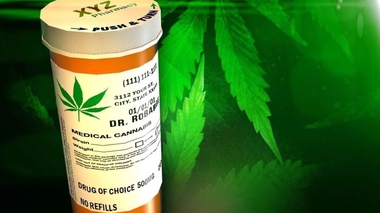The battle for medical marijuana in the South-Central region

by Jordan Redman
Staff Writer
On June 26, 2018, Oklahomans have an important decision to make. State Question 788 (SQ788) would allow for the legalization of medical marijuana.
In Missouri, they’re fighting their own battle for medical marijuana.
In Arkansas, medical marijuana is legal, but not everywhere.
Kansas tried to pass a medical marijuana initiative in March 2018.
Texas only allows certain patients to use medical marijuana.
For Oklahoma, a yes or no is required, a “yes vote legalizes the licensed use, sale, and growth of marijuana in Oklahoma for medical purposes,” while a no vote rejects legalizing medical marijuana.
To break down the ballot, “A license is required for use and possession of marijuana for medicinal purposes and must be approved by an Oklahoma Board Certified Physician.
“The State Department of Health will issue medical marijuana licenses if the applicant is eighteen years or older and an Oklahoma resident. A special exception will be granted to an applicant under the age of eighteen. However, these applications must be signed by two physicians and a parent or legal guardian.”
The ballot continues, “The Department will also issue seller, grower, packaging, transportation, research and caregiver licenses. Individual and retail businesses must meet minimal requirements to be licensed to sell marijuana to licensees.”
“Oklahomans should not have to become ‘medical refugees’ and be forced to move to a neighboring state to get effective medical care,” stated Oklahomans For Health, the official proponent of SQ788.
Chip Paul, one of three founders of Oklahomans For Health, said he does not want to limit the number of people who are eligible to grow marijuana. “If a patient is prescribed marijuana, they should be able to grow their own medicine,” Paul said.
According to an excerpt from the JAMA Internal Medicine, a peer-reviewed medical journal, cannabis access is associated with reduced rates of opioid use and abuse, opioid-related hospitalizations, opioid-related traffic fatalities, opioid-related drug treatment admissions and opioid-related overdose deaths.
“State implementation of medical marijuana laws were associated with a 5.88 percent lower rate of opioid prescribing,” according to Hefei Wen, Ph.D.
Oklahomans For Health wants to make the transition for medical professionals in Oklahoma easy, should SQ788 pass.
“SQ788 represents one of the most progressive medical marijuana laws in the country,” Paul said. “No other medical marijuana law is as tightly regulated (physician recommendation over checkbox of conditions), and no other medical marijuana law more closely match the existing system physicians are used to working under.”
A coalition that includes law enforcement, prosecutors and members of the business and medical community is opposing the measure.
The group, known as SQ 788 is Not Medical, registered as an unlimited political action committee with the Oklahoma Ethics Commission. It includes some politically powerful organizations, including the District Attorneys Council, Oklahoma Sheriffs’ Association, Oklahoma State Medical Association and The State Chamber.
The Missouri House voted on May 2, 2018, to legalize medical marijuana and Republican Rep. Jim Neely, the bill’s sponsor and a physician argued that it was important that the legislature set the rules for the industry.
“If we don’t take action,” Neely said, “voters of this state may very well take the decision out of the hands of the politicians and put it in the hands of the voters.”
Arkansas, a neighboring state, is less restrictive when it comes to legal cannabis.
In Arkansas, medical marijuana is legal, but not everywhere, “Using medical cannabis is prohibited in a school bus, on the grounds of any preschool or primary or secondary school, in any correctional facility, in any motor vehicle.”
Arkansas law continues with, “in a private residence used at any time to provide licensed child care or other similar social service care on the premises and in any public place where an individual could reasonably be expected to be observed by others.”
Restrictions include public places including all parts of buildings owned in a whole or in part, or leased, by the state or local unit of government. Using medical marijuana is also prohibited in a health care facility or any other place where smoking is prohibited by the Clean Indoor Air Act of 2006.
In March, 2018, Kansas tried to pass a medical marijuana initiative. The Kansas Safe Access Act failed by a 54-69 vote in the House of Representatives.
Texas gives doctors the option to prescribe medical marijuana, but only to certain patients. The Texas Compassionate Use Act made medical cannabis available to certain people. The law allows a dosage that can’t exceed more than 0.5 percent of THC and not less than 10 percent of cannabidiol (CBD).
In Texas, there are only 21 doctors who are registered with the state to prescribe medical cannabis. To meet medical marijuana qualifications in Texas, epilepsy sufferers must obtain prescriptions from two state-licensed physicians before they can legally obtain CBD oil.
It’s clear, both proponents and opponents of medical marijuana in the South-Central reason will continue to fight for their cause.
Copyright The Gayly. June 18, 2018. 10:10 a.m. CST.





